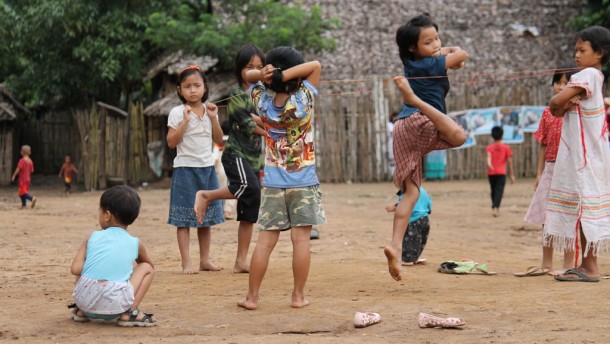Thailand may repatriate thousands of Burmese refugees within the next year, according to the country’s National Security Council (NSC), which released a statement on Thursday following a recent visit to Burma where its delegates met with President Office’s Minister Aung Min.
More than 140,000 Burmese refugees currently reside in nine camps situated along the Thai-Burma border. Most are ethnic Karen who have fled from their villages over the past 25 years to escape the ongoing conflict in the region.
The Thai statement comes at a time when Burma is undergoing a period of political and economic reform, and several ceasefire agreements have been made between Naypyidaw and armed ethnic groups in eastern and northern Burma.
NSC secretary-general Wichean Potephosree, who was involved in the talks with Aung Min in the Burmese capital, said in the statement that Burma “is clearing landmines along the border, preparing to build shelters and other infrastructure … to be ready within one year.”
In an recent interview with The Irrawaddy, Aung Min said the government will provide food and shelter to the returnees for one year and provide them with job opportunities.
“For those who want to work as farmers, we will provide equipment,” he said.
He also said that the Burmese government will construct industrial zones on its territory close to the Thai border towns of Mae Sot, Mae Sai and Three Pagoda Pass, which will create job opportunities in the area for those who want to work in factories.
Wichean confirmed that Burma wants Thais to invest in building industrial estates on its soil in order to employ the potential returnees.
However, Saw Robert Htwe, the chairman of Karen Refugees Committee (KRC), told The Irrawaddy on Friday that it is impossible to repatriate more than 100,000 people within a year. Neither villages nor shelters nor food and security have been prepared for the returning refugees, he said. Additional facilities such as healthcare and education must also be considered, he added.
Suitable sites must be identified and a de-mining project must be carried out before refugees can be repatriated, he said. Such a large-scale de-mining program will take at least one or two years, the KRC chairman said.
Meanwhile, Thailand Burma Border Consortium (TBBC), a humanitarian aid agency that has been assisting Burmese refugees on the Thai border for more than 20 years, said that Burmese political reforms have increased the likelihood of the refugees returning.
The agency make the comment after its leaders visited Burma in early September where they also met with representatives of various civil society groups.
Duncan McArthur, the group’s emergency response director, said that TBBC has explored the conditions in Burma as it plans to establish a presence inside the country where it can coordinate between humanitarian agencies on both sides of the border.
















